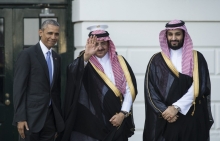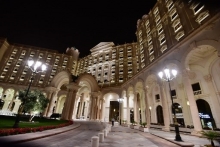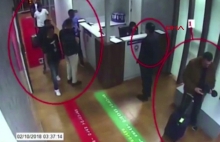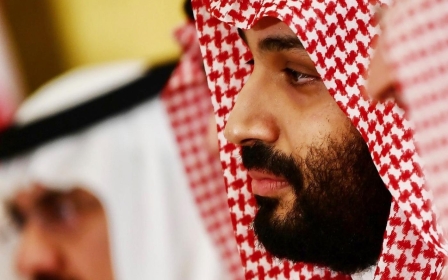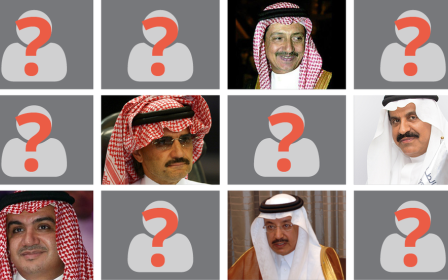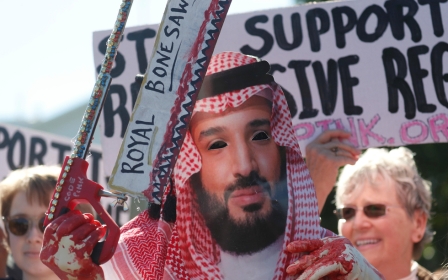Dead, detained or disappeared: A who’s who of Mohammed bin Salman’s victims
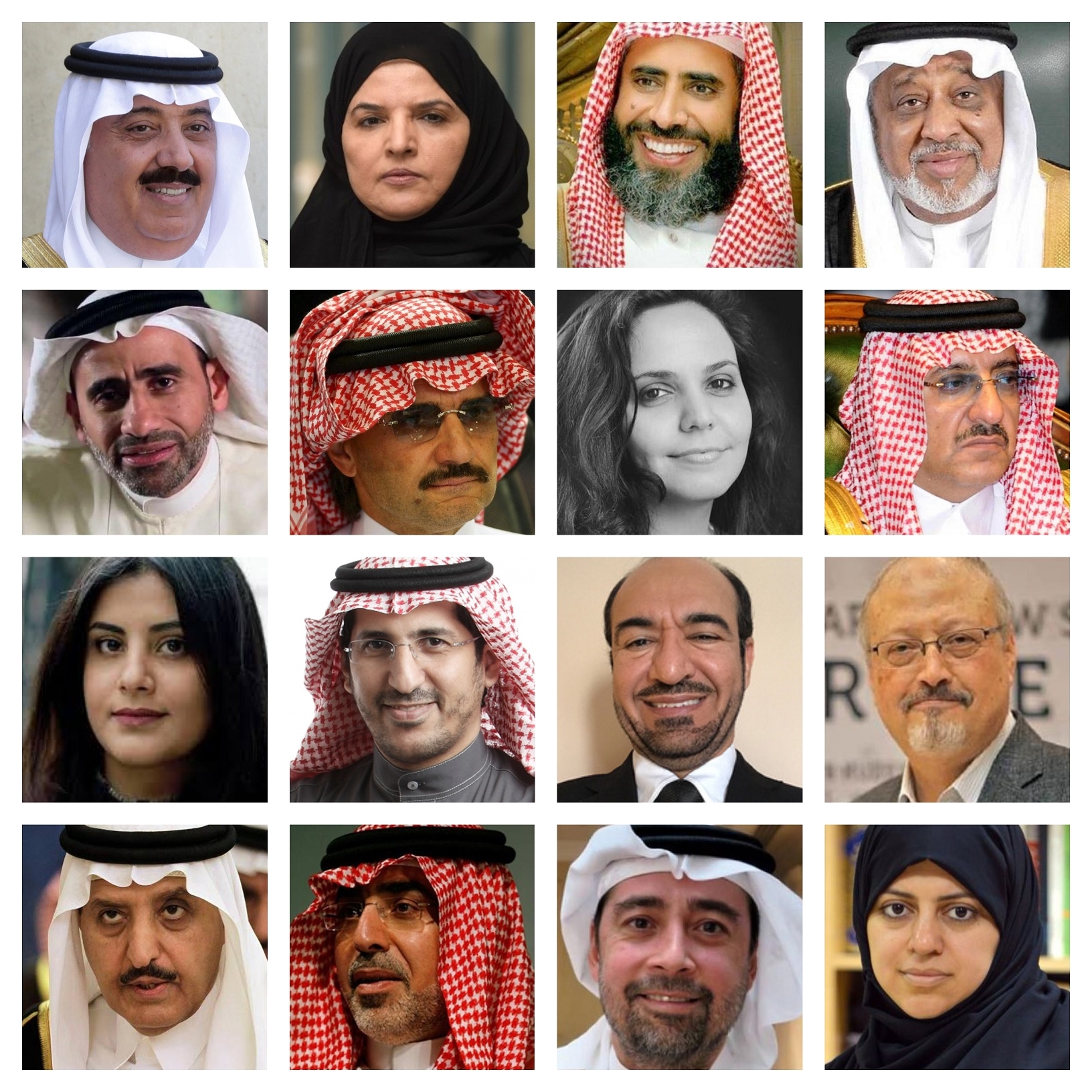
When Saudi Arabia's King Salman ascended to the throne in 2015 and named his 29-year-old son, Mohammed, as defence minister and then as deputy crown prince, there was talk of the rising star who would reshape the kingdom.
Five years later, Mohammed bin Salman, now apparently poised to become king, has consolidated his control and shaken the foundations of the House of Saud by ruthlessly eliminating or neutralising his perceived rivals and vocal critics, including senior members of the royal family.
Here's an overview of some of the leading princes, officials, dissidents and business people who have been arrested and detained, exiled and, in some cases, allegedly killed in the course of Mohammed bin Salman's pursuit of power.
Arrested
Last week, at least 20 princes and officials were arrested as part of a fresh purge launched by the crown prince. They include:
New MEE newsletter: Jerusalem Dispatch
Sign up to get the latest insights and analysis on Israel-Palestine, alongside Turkey Unpacked and other MEE newsletters
♦ Prince Mohammed Bin Saad Bin Abdulaziz Al Saud, 75 or 76, the son of the late brother of King Salman and a member of the Bayaa, or Allegiance Council, which determines the succession of the Saudi throne.
♦ Prince Mohammed bin Nayef, 60, the former crown prince and interior minister and nephew of King Salman. Nayef had reportedly been under house arrest since 2017 after he was stripped of his title and ministerial role, and removed from the line of succession.
♦ Prince Ahmed bin Abdulaziz, 77, the younger brother of King Salman and the son of Abdulaziz, Saudi Arabia's founder and first ruler. The prince had returned to the kingdom from London in late 2018 aiming to block his nephew's ascension to the throne by using the Bayaa and had assurances from MI6 and the CIA that he would not be arrested.
♦ Nayef bin Ahmed, the son of Prince Ahmed
♦ Mansour al-Shalhoub, the director of Prince Ahmed’s private office
Questioned and released
♦ Saud bin Nayef, 63 or 64, the elder brother of Mohammed bin Nayef, the governor of the Eastern Province and a member of the Bayaa, was taken in for questioning in March 2020 but was released. Saud bin Nayef is also the father of the kingdom's current interior minister.
Previously arrested
The largest purge to date under the crown prince was the November 2017 round-up of royals, officials and business tycoons who were held in the Ritz-Carlton hotel in Riyadh as part of a purported anti-corruption drive. Those held included:
♦ Prince Miteb bin Abdullah, 67, the son of the late King Abdullah and former head of the National Guard. He was released later that month after reportedly paying more than $1bn in a corruption settlement. It was not clear whether he had the freedom to move or travel.
♦ Prince Alwaleed bin Talal, 65, one of the world's richest men and then chairman of Kingdom Holding Company. He was released in January 2018 after having reportedly reached a financial settlement of some kind with the kingdom's attorney general.
♦ Along with royals, dozens of former officials and business people were arrested and later released. They included: Khaled al-Tuwaijri, former chief of the Saudi royal court; Amr al-Dabbagh, chief executive of the al-Dabbagh Group and former Saudi Arabian General Investment Authority head; Mohammed Hussein al-Amoudi, a Saudi-Ethiopian dual citizen and one of Ethiopia's most important investors; Dr Walid Fitaihi, a popular reformist and TV presenter; and Hani Khoja, a former McKinsey consultant.
Exiled
♦ Saad al-Jabri, a former intelligence official and top adviser to Mohammed bin Nayef when he led the interior ministry. Jabri was fired by royal decree in 2015 after a power struggle in the ministry between bin Nayef and bin Salman. He fled the kingdom in 2017, shortly before his former boss was deposed and put under house arrest. He was given refuge in Canada.
Killed
♦ Jamal Khashoggi, Saudi journalist and former media adviser to Prince Turki bin Faisal when the royal served as the kingdom's US ambassador in the 2000s. He was murdered in the Saudi consulate in Istanbul by 15 members of the Tiger Squad, a group of intelligence and military operatives established under MBS, in October 2018.
♦ Prince Mansour bin Muqrin, deputy governor of Asir province and son of a former crown prince, was allegedly killed by the Tiger Squad in a helicopter crash near the Saudi border with Yemen in November 2017. Sources told MEE that he was attempting to flee the kingdom when he was killed.
♦ Sheikh Suliman Abdul Rahman al-Thuniyan, Mecca public court's president and judge, was allegedly killed in a hospital in Riyadh in October 2018 by the Tiger Squad by an injection. The judge had sent a letter to MBS opposing his 2030 economic vision.
Jailed
♦ In September 2017, religious scholars Sheikh Salman al-Odah, Awad al-Qarni and Ali al-Omari, all tied to the Muslim Brotherhood-inspired Sahwa movement, were arrested in a sweep that eventually saw more than 60 people put behind bars.
♦ Throughout 2018, more than a dozen women's rights activists including Loujain al-Hathloul, Eman al-Nafjan and Aziza al-Yousef, were arrested and detained. Some have been granted temporary release while others remain imprisoned.
Middle East Eye delivers independent and unrivalled coverage and analysis of the Middle East, North Africa and beyond. To learn more about republishing this content and the associated fees, please fill out this form. More about MEE can be found here.


